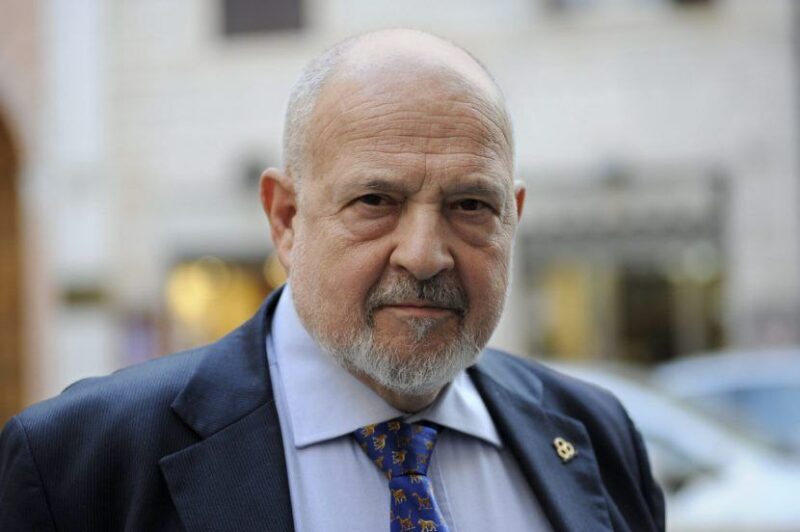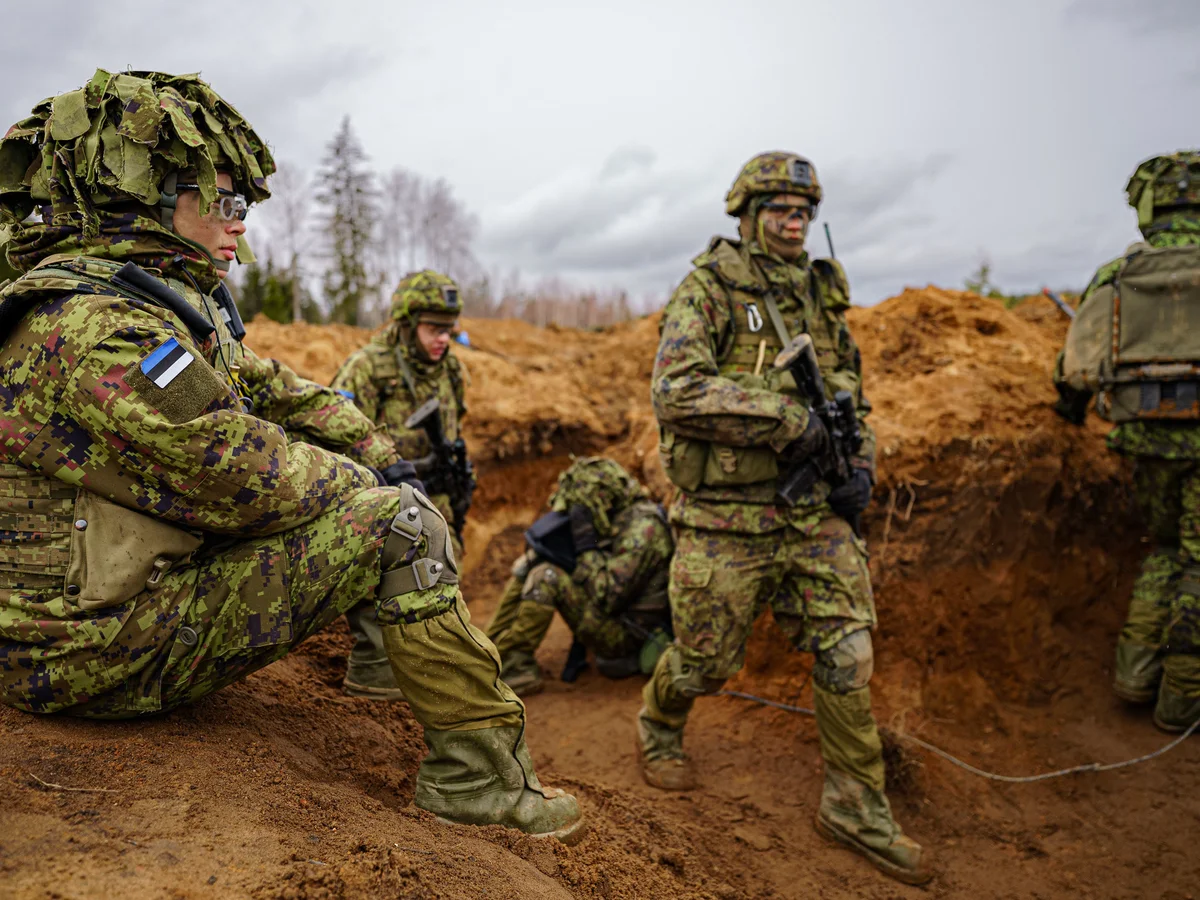First part of the interview focusing on historic roots of anti-Russian sentiment in the continent.
First part of the interview focusing on historic roots of anti-Russian sentiment in the continent.
We conducted an extensive interview with Prof. Dr. Franco Cardini, one of Italy’s foremost living medieval historians, who continues to teach at the University of Florence.
Cardini provided our questions with deep and detailed answers, blending current events with historical perspective.
In the first part of this two-part interview, Cardini shares his views on the current state of the European Union, the Brussels administration, rearmament, and the standoff with Russia.
You mention that “When a state is driven to collapse, it faces two paths: either declare bankruptcy or declare war”. Are you referring to the current situation of the European Union? Do you consider that the EU has entered a process of collapse?
Actually, I’m referring to Trump and his rhapsodic, capricious way of handling foreign policy (I’m especially alluding to the arbitrary tariffs imposed, along with the NATO requirement that subordinate members of the alliance purchase 60% of their arms from the U.S.). Trump’s America is by no means out of crisis; on the contrary, many argue that the risk of a new “civil war” is real. As for Europe, its difficulties may be of similar scale, but of a different nature.
EU based on an old aspiration
Aside from the internal leadership claims within the EU—sometimes asserted by France, sometimes by Germany, sometimes by both—the Union has been suffering from a fundamental misunderstanding since its inception: many people within the countries that gradually joined believed and hoped that work was being done toward a political, above all a political, union of European peoples. This was based on an old aspiration that was, in fact, culturally a reality in the Middle Ages (though back then it was called “Latin Christendom,” which united all those peoples for whom Latin was the liturgical and cultural language). To this, at least since the fifteenth century, the “Greek Christendom” of the Hellenic and Slavic peoples had been added; finally, in the sixteenth and seventeenth centuries, and especially under Tsars Peter I and Catherine II, the Russian and Armenian peoples had been gradually incorporated into Europe; and with Mustafa Kemal’s revolution, even Türkiye became Europe.

EU under the influence of Davos, WTO, ECB and IMF
Well, in the 1950s, the U.S., its agent Mr. Jean Monnet, and the governments backing the European Union project objectively (I don’t know if also subjectively—certainly, for example, Robert Schuman’s intentions were different) misled the Europeans: the aim was not a European Union as a supranational reality, perhaps federal in nature, or politically united, but rather a union limited to a few, albeit very important, sectors of economic, financial, social, technological, artistic, and cultural life; political unity of states and peoples was not the goal. The European Union is a union of governments, heavily influenced by the continent’s financial, industrial, and technological lobbies—those, to be clear, that have gathered every year since 1971 in the Swiss town of Davos for the WEF (World Economic Forum), with projections organized through bodies like the WTO, the World Travel Center, the ECB (European Central Bank), and the IMF (International Monetary Fund).
The European Federation: an achievable dream?
The European Federation (or perhaps better, since it fits more appropriately, the European Confederation—i.e., the political union of all European states and peoples) remains an unrealized, and perhaps unachievable, dream: if it were to emerge, it would constitute a global superpower that, in the hopes of the peoples, would be a major force for peace and social progress, positioned between the U.S.-led bloc and the so-called “Anglosphere” (Britain, Canada, Australia), to which the EU is subordinate, on one side, and the BRICS on the other. A balancing power, which today’s U.S. and European political elites certainly do not want.
“Economic-financial-industrial giant, a social dwarf, and a poor worm militarily”
As it stands now, the EU, with its seats in Brussels and Strasbourg, is an extremely costly, elephantine, and harmful organization. Europe is an economic-financial-industrial giant, a social dwarf, and a poor worm militarily. If a European army is formed under these conditions, it will be a force of conscripts serving the American superpower and turbo-capitalist lobbies. The soul of Europe should be a “European patriotism” that transcends the continental micro-nationalisms of so-called “sovereigntists”; its driving force should be a true European School, open, of course, to national and popular cultures (Europe is politically and culturally an archipelago, and it must remain so). There is not even a shadow of this yet.
What are the most concrete signs that the EU has entered this process? When we include the economy, international relations and domestic politics, are there any historical examples that show similarities?
I’ve partly already answered. The European Union, as an effective reality, is now a “dead man walking”: it can only harm itself and those who delude themselves into thinking they can manage it, because it is already divided internally and externally controlled by forces outside it. What is needed is a new project, genuinely European and independent from external powers: we need parties that, based on individual national realities, come together within each country to build a parliament that is a true expression of everyone, at the continental level (today, the parties present are just projections of the national parties of each country).
A bicameral system is necessary, where the lower house—the House of Political Forces—expresses the parties, and the upper house—the Senate—represents, as in the U.S., the interests and aspirations of each people, not of individual governments. The second century of our era was the century of nations for Europe; the third must be the century of a single European homeland and the peoples that constitute it.
A new Operation Barbarossa
You compare Merz’s project to a new “Operation Barbarossa”. Do Merz, Macron and the Brussels leadership have a plan to directly involve the EU in a war by attacking Russia?
Merz certainly does not want or plan any “Operation Barbarossa”: my expression was merely a caricature aimed at his militaristic attitudes. The point is different: Germany, until now, has been a country undergoing a “long denazification,” which in part continues even today (just think of the instrumental, shameful use of the Holocaust tragedy as a political lever to intimidate anyone who dares criticize the criminal policies of Mr. Netanyahu and the clique of religious and/or nationalist fanatics that still support him).
Merz dreams of a rearmed and militarized Germany
Today, however, Herr Merz fantasizes about guiding this hysterically anti-Nazi Germany—which is anti-Nazi only to the extent that it still refuses to accept Nazism as a historical phase, harmful as it may have been, in German and European history—toward a new nationalist-sovereigntist pride to be imposed, perhaps in alliance with Macron’s France, on the rest of Europe in managing the military force of a Europe that remains tied, if not chained, to U.S. policy. Merz dreams of a rearmed and militarized Germany leading the rest of Europe in political subservience to the U.S.
And perhaps there is even worse, as often hinted at by Ms. Ursula von der Leyen: the new armed, military, and possibly even militarist Europe is supposed to inherit entirely the policy so far inspired by Washington—a so-called “Westernist” policy aimed at perpetuating NATO’s aggressiveness, which over the past thirty years, since the end of the last century, has moved its nuclear strike line from the old “Iron Curtain” to the borders of Moldova, Finland, and the Baltic countries.
Anti-Russian, anti-Iranian and anti-Chinese
Today, there exist in European governments and part of public opinion ideas even more extreme than those in the U.S.: a “new NATO” is being dreamed of, anti-Russian, anti-Iranian, and anti-Chinese, which would go beyond the limits set by the U.S. government, and if Washington and Moscow were to eventually find a balance, it would proceed alone, following an anti-Putin line and, in the longer term, an anti-Chinese one. If Trump were to withdraw NATO’s umbrella from Europe, or even dismantle it permanently, so much the worse: Europe would continue NATO’s historical aggressive line even without him. We are at the point of madness.
How do you assess the “demonization” of Russia, Russian culture and Putin? Is Russia really a threat? Does this ‘demonization’ resemble the methods used in medieval Europe?
It must be said right away that historical comparisons are inappropriate and, more than dangerous, absurd.
Medieval Europe was not only about the Crusades and witch hunts: it was also about the pursuit of peace, which inspired both Roman law and Catholic theology; it was the Europe of trade and scholarship (the universities, modeled after the Abbasid Bayt al-Hikmah), of brotherhood with Jews, who were often persecuted (yet the Christian Bible is derived from the Hebrew one, and the Jewish prophets are the same for both Christianity and Islam), and with Muslims (it is widely known in the educated Muslim world that the Christian prophets are the same as in Judaism and Islam, and that in Christianity there is a strong current of thought according to which Mehmet is the “prophet of the coming Christ,” who will return at the end of times to defeat the Dajjal). Christian philosophers and scientists were the same as those of the Greek world (exactly as in Islam: Plato, Aristotle, Plotinus) and of the Muslim world (Ibn Sina, Ibn Rushd). This is the “Middle Ages.”
“The demonization of Russia began in the 19th century, especially during the Crimean War”
As for the demonization of Russia, it is an old story, which corresponds in Russian culture itself to a “psychopathy of encirclement.” In Europe, the demonization of Russia began in the 19th century, especially during the Crimean War, and was later perpetuated due to British influence (the Great Game, in which novelist Rudyard Kipling played a key role), inherited—strangely enough—by fascism and Nazism with their visceral, irrational, almost mystical anti-communism that survives to this day. The caricatured view, for example, of Stalinist Russia as a hell populated by monsters is even stronger than commonly believed: democratic Europe feeds on these ghosts, on an anti-communism and even an anti-fascism that are largely imaginary yet alive in public opinion, sustained by opinion leaders and influencers, supported by the lies of the media (journalistic, cinematic, and television dissemination).
A politician who is supposed to be serious—President Macron of the French presidential republic (thus not only head of state but also of government)—after having called Putin a “tyrant” and “one of us with blood-stained hands,” has now called him an “ogre.” Now, an ogre is a monster from children’s fairy tales: Macron has returned to being a child (Italian expression captured in the verb “rimbambire”) or treats his people as a nation of simpletons. It is to these grotesque figures that Europe entrusts itself today; it is no wonder that they have almost sanctified an ambiguous figure with manic traits like the Ukrainian Zelensky.

















Leave a Reply